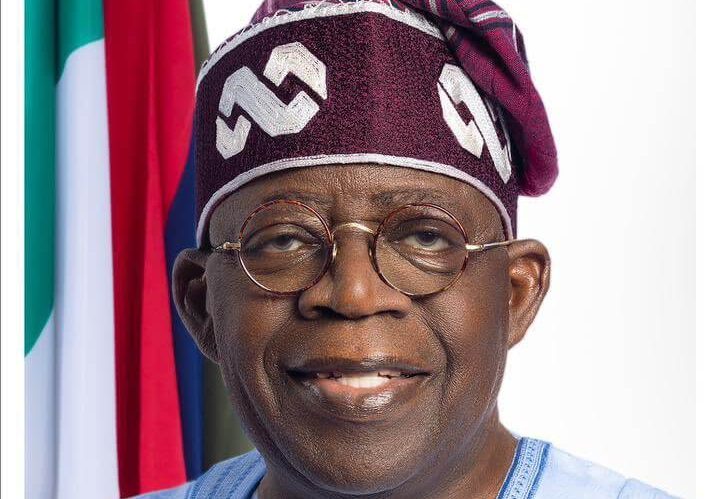President Bola Tinubu has been tasked on the immediate need to decisively fight corruption to halt the country’s possible drift into a major economic crisis amidst reports that Nigeria loses about $60 billion every year to corruption.
The Human and Environmental Development Agenda (HEDA Resource Centre), local and international partners set the anti-corruption agenda for the new administration at a two-day National Anti-Corruption conference held in Abuja, Nigeria’s capital.
The event, with theme: “Nigeria and the Fight against Corruption: Reviewing the Buhari Regime and Setting Agenda for the Tinubu Administration,” organized by the HEDA Resource Centre and Centre for Fiscal Transparency and Integrity Watch was attended by no fewer than 80 participants drawn from across the country, foreign countries and institutional bodies representatives.
It began on Tuesday and ended on Wednesday.

The summit is coming at the 20 years anniversary of the African Union Convention on Preventing and Combating Corruption declaration, which took place in July 2003.
HEDA observed that Nigeria with a debt portfolio of N77 trillion, inflation rate at 23 per cent, GDP at 2.35 per cent coupled with unrelenting zeal for graft by public officials, a bold step needed to be taken by the new government to block waste, stop corruption and recreate a new public confidence to save the country from social crisis.
Some of the agenda set for the new Government is to fast track the whistleblower law, payment of backlog of royalties by oil companies, anti-corruption courts for speedy prosecution of corruption cases, firm implementation of the public procurement law and accountability on the part of political actors among others.
The National Assembly was also charged to affirm Nigeria’s readiness to join the international Special Task Force on Corruption to enable efficient recovery of illicit funds.
Participants also listed the retrieval of billions of funds paid to phantom oil subsidy in the past years, oil theft, public funds stolen by political actors and a significant cut in the cost of governance as some of the critical steps that Tinubu needed to take to save the country.
Represented at the event were the Vice President, Kashim Shetimma; Inspector General of Police, Kayode Egbetokun; National Security Adviser, Nuhu Ribadu; National Assembly; Judiciary; Ministry of Interior; and international partners such as the United Nations Development Programme, United States and Dutch Embassies, MacArthur Foundation, World Bank, United Nations Office on Drugs and Crime, Labour, Media and Civil Society Organisations.
Speaking at the event, Femi Falana (SAN) said billions of dollars are lost by Nigeria to oil theft and the refusal of oil companies to pay the total expected tax amounting to billions over the past years without sanctions.
Falana said Nigeria has failed put the mechanism in place to determine how many litres of oil are taken from the country’s onshore and offshore.
However, the Managing Director of the Nigeria Upstream Regulatory Commission, Gbenga Komolafe, said a new equipment had been acquired by the commission to monitor every litre of oil taken from Nigeria, adding that the new initiative will create a paradigm shift in oil-related revenue generation in the country.
HEDA Chairman, Olanrewaju Suraju, noted that there have been no reasons to believe that there was going to be any serious fight against corruption given the experiences in the past years.
He said Nigeria’s hope is rekindled by the iron cast will of Nigerians and the irresistible wind of change blowing against corruption across the world of which Nigeria cannot be an exception.
Suraju said there was the need to set agenda for constructive CSO engagement with the new regime to develop the framework for good governance.
Falana, while delivering his lead presentation on the theme: “Effective recovery of illicit assets and blocking opportunities for Illicit Financial Flow; Role of international frameworks, Bodies, Courts and instruments in a context of new dispensation,” said that Illicit financial flow is a challenge.
He said: “Illicit financial flow is a challenge to Nigeria and the recent devaluation of Nigeria currency.
“Civil servants cannot live on their salaries, which night draw them to corruption.”
Also Read:
- Governor Okpebholo’s unshaken drive to recover Edo’s stolen assets, by Fred Itua
- NiDCOM boss celebrates Akinwunmi Adesina as he marks yet another birthday
- Abia governor signs security trust fund bill into law
- Tinubu celebrates veteran journalist, Bayo Oludare Awosemo on his 70th birthday
- Enforcement of ban on single use plastics to commence soon -Lagos
Ribadu expressed the commitment of the Tinubu-led administration to build the capacity of investigators as part of efforts to enhance the war against corruption in the civil service and Nigeria as a whole.
Ribadu, represented by the Special Adviser, Legal Department, NSA, Anthony Oluborode, maintained that a cap will be placed on fiscal expenditures for construction of government buildings and salaries-related compensation, packages of elected officials, adding that such expenditure will have a low priority in the Tinubu-led administration and be transparent.
Other participants were representatives of West Africa Association of Internal Audit Practitioners, Noble Patrick Nzechukwu; Chartered Institute of Taxation, Samuel Olushola; Centre for Fiscal Transparency and Integrity Watch; Journalists for Democratic Rights, Adewale Adeoye; National Orientation Agency, Dr. Garba Abari; Chief Judge of the Federal High Court, Justice John Tsoho; Prof. Sadiq Isah Rada, PACAC; and Prof. Jide Fowowe of the University of Ibadan.


